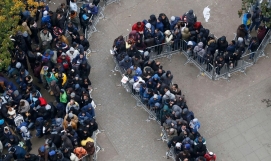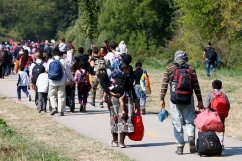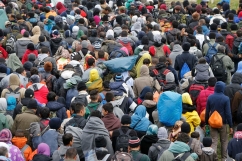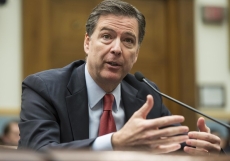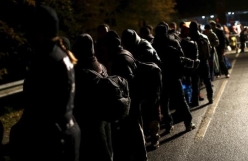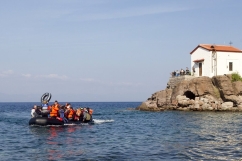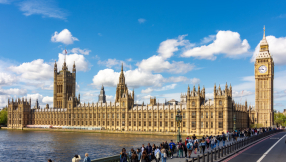Some have questioned why the United States has agreed to accept so many Syrian migrants into the country, with critics warning that terror group ISIS may try to use the migrant problem as a way of injecting lone wolf attackers into the country. However, some have now highlighted a recent Economist magazine article claiming that the reasons for the acceptance may be for economic reasons.
According to the magazine, 100 U.S. cities are competing with one another to accept migrants to take advantage of economic incentives that could come with the influx of refugees.
Mayors in some cities are relying on an influx of new immigrants to fill a void left by residents who have left their cities in droves. The Economist feature states that most of the residents who have left are native-born middle class whites who have moved to the suburbs.
One city highlighted is Baltimore, which it is claimed, needs a population boost in its inner-city areas. The city's mayor, Stephanie Rawlings-Blake, told the Economist that Baltimore desperately needs new residents to keep its economy going, noting that the city has lost a third of its population since 1950.
Rawlings-Blake is one of 18 U.S. mayors asking the Obama administration to give them more Syrian refugees.
These 18 were among 100 mayors who have formed a group named "Cities United for Immigration Action."
Baltimore, Maryland's largest city, previously received refugees from United Nations camps in developing countries.
According to the Economist, Baltimore has been used for more than a decade as an entry point for refugees into the United States. Federal agencies led by the State Department have reportedly sent 700-800 refugees to the city each year in recent years, with refugees coming from troubled places as Nepal, Iraq and Eritrea.
However, the magazine also notes that after just a few years, two-thirds of these refugees left Baltimore and moved on to other cities.
Aside from Baltimore, other major U.S. cities that are in need of more people to man their industries include Detroit (which has lost almost half of its population) in Michigan, Pittsburgh in Pennsylvania and Syracuse in New York.
These cities are now competing in attracting new residents, offering them jobs and assistance in overcoming language barriers and paper work needed for their employment. Some cities offer newcomers grants to enable them to quickly set up their own businesses, according to the Economist.
Syracuse is also one of the cities openly courting migrants to settle in the city. As a result, Syracuse has received so many Muslim refugees over the past decade that it recently resorted to converting one of its largest Catholic churches into a mosque; a project that was approved by the U.S. Conference of Catholic Bishops and funded by American taxpayers, according to Robert Spencer in his blog, Jihad Watch.
In their letter to Obama, the mayors stated that they are aware of the security risks of importing Syrian refugees as pointed out by FBI Director James Comey, but they also say they believe the economic benefits outweigh the potential security threats.










